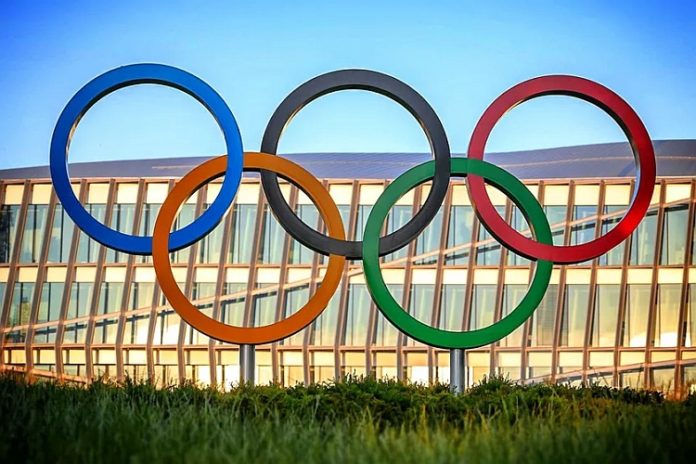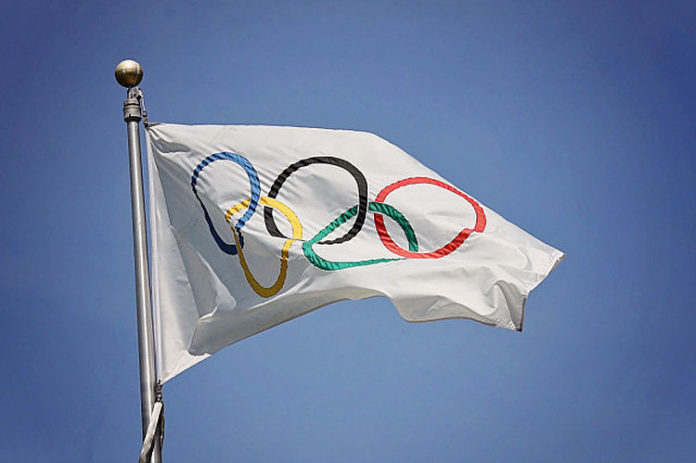(★ Bravo! Now 42 donors have covered 67% of our site costs for services for the first six months of 2022. To keep the coverage going, please donate here. ★)
This has been a rough couple of years in international sport, dating back to the worldwide spread of the coronavirus in the spring of 2020 and the slow march to the Tokyo Olympic Games last July and the Beijing Olympic Winter Games in February.
Then came the ongoing Russian invasion of Ukraine on 24 February – four days after the closing of the Winter Games – and the International Olympic Committee’s stern request to “not invite or allow the participation of Russian and Belarusian athletes and officials in international competitions” on 28 February.
IOC President Thomas Bach (GER) said days later of the bans, “we are coming to our limits. We have no police force, we have no military. There we can only offer moral support and can help to shed the light on this situation, but there our influence ends.”
But that does not mean that the IOC can take any kind of respite. The Tokyo and Beijing Games presented a host of issues that are going to have to get solved, and fairly soon, with Paris 2024 coming quickly into focus.
It’s amazing to think that the Winter Games closed just less than three weeks ago, but left a host of unanswered questions:
● What happens with the Figure Skating Team Event medals? Russia won, but with 15-year-old Kamila Valieva competing while having a doping positive that is yet to be confirmed, ahead of the U.S. and Japan, with Canada fourth.
No medals were awarded, as the news of Valieva’s positive from last December broke just after the end of the competition. The nine members of the U.S. petitioned the Court of Arbitration for Sport to have the ceremony in Beijing, but the appeal was dismissed.
IOC spokesman Mark Adams said a ceremony would be arranged, somewhere, sometime once the medalists were confirmed. So everyone waits for the testing results to be confirmed and then undoubtedly appealed by one side or the other. This is going to take awhile.
● The Valieva affair raised questions about the ages of athletes at the Games. At 15, Valieva was a “protected person” for the reporting of doping-control results, but not for the implementation of sanctions. Should the IOC require higher age limits for the Olympic Games so that the contestants are not minors?
But then what about the IOC’s drive for “youth engagement” and its Tokyo showcase, the “women’s” skateboarding events? The Park medals were won by skaters aged 19, 13 and 13, and the Street medalists were 14, 13 and 16.
Does the IOC want to knock them out? Or the teen women’s gymnasts?
Is the not-currently-too-important Youth Olympic Games reshaped into a “teen Olympics” starting in 2030, which would then be highly attractive?
● Bach complained bitterly during a Beijing news conference that the IOC did not have the right sanctions in hand to deal with coaches, trainers, doctors and other entourage members who might be corrupting youngsters like Valieva.
He found the harsh treatment of Valieva by celebrated Russian coach Eteri Tutberidze “chilling,” but said the IOC had no way to deal with this. What now?
After a loss at the Court of Arbitration for Sport during the Tokyo Games over the accreditation of a Russian weightlifting official who had been penalized for doping during his competitive career, the Olympic Charter was modified to allow the IOC to remove anyone’s accreditation at the Games, but only for a rule violation … not for being mean.
● The astonishing loss by the IOC and the World Anti-Doping Agency at the Court of Arbitration for Sport in Beijing in the Valieva case raises a whole new series of issues.
WADA angrily noted that the CAS panel “decided to ignore the clear and unambiguous terms of the 2021 World Anti-Doping Code regarding the criteria for lifting a mandatory provisional suspension,” adding “This is not what the Code says, not what the Code drafters intended and was never proposed by any of WADA’s stakeholders during the three rounds of Code consultation.”
Is the CAS itself to be questioned? What is the correct response to a stunning ruling like this? Reforms coming? Rest assured, this will be discussed.
● The question of “universality” places came up several times in Beijing. In the Olympic Games, the qualification procedures require that continental representatives are present, even if the quality of the entrants is modest at best, as a development initiative.
But that is not required in the Winter Games and there were complaints about this in Beijing. Will the Winter Games start to push up against size restrictions as the Olympic Games has? The IOC has seen the Winter Games as ripe for continued expansion … up until now.
● Then there is Russia and China. The Winter Paralympic Games will end this Sunday (13th) and the Olympic Truce period will close on 20 March.
Will China move against Taiwan after that date, so that it can say it has observed the Olympic Truce? And what about the future of Russia and the Olympic Movement?
Russia has no friends at court at present, although the IOC has been clear that the Russian government is the aggressor in Ukraine and not Russian athletes or officials, such as IOC members Shamil Tarpischev (elected in 1994) or Yelena Isinbayeva, elected for 2016-24 as an IOC Athletes’ Commission members. Neither is an Executive Board member.
The late IOC President Juan Antonio Samaranch (ESP) always insisted that everyone had to be a part of the Olympic Movement if at all possible. South Africa, finally with a racially-integrated team, was readmitted during his tenure and Samaranch worked tirelessly to end the string of major boycotts at the time of the 1988 Olympic Games in Seoul (KOR).
Bach has inherited and accepted that view, narrowing it – if necessary – to only include athletes as part of an Olympic Refugee Team, instituted in 2016 in Rio de Janeiro (BRA). But the antics of the Russians in Beijing and now with the invasion of Ukraine are bringing calls for having Russia skip at least Paris in 2024 and perhaps Milan Cortina in 2026.
Remember that the World Anti-Doping Agency called for banning Russian participation in the Games from 2019-23 – covering Tokyo and Beijing – but that was reduced to two years by the Court of Arbitration for Sport in December 2020. Yep, there’s that pesky Court again.
We haven’t even mentioned the situation regarding Chinese tennis star Peng Shuai’s continuing safety yet, among other challenges regarding China, including French government questions about data privacy and Alibaba’s provision – as an IOC sponsor – of broadcasting and data signals inside the European Union for Paris.
And there is the question of what events and added sports will be proposed by the Los Angeles organizers for the 2028 Games, whether to pick Sapporo or Salt Lake City for the 2030 Winter Games, and whether the reduction in interest in the Games in the U.S. – both broadcast and press – be reversed by a more time zone-friendly Games in Paris 2024 … or is a permanent decline?
Oh yes, what about the Olympic future of boxing, modern pentathlon and weightlifting, federations Bach has referred to as the IOC’s “problem children”? And what about FIFA and its World Cup-every-two-years concept?
Working through the Covid challenges in two Games in Asia within seven months was an exhausting, all-consuming effort for the IOC’s professional staff. But there is no rest for the weary in an unsettled and at-risk world, in sport and otherwise.
Rich Perelman
Editor
You can receive our exclusive TSX Report by e-mail by clicking here. You can also refer a friend by clicking here, and can donate here to keep this site going.
For our 832-event International Sports Calendar for 2022 and beyond, by date and by sport, click here!

























